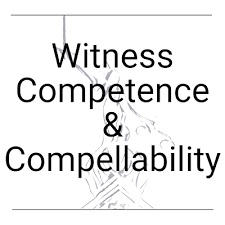In this article we shall study statements by persons who cannot be called witnesses particularly with respect to dying declaration. A fact to be proved by oral evidence must be stated before the court by a person who has first-hand knowledge on the facts to be proved. Second-hand evidence is loosely termed as hearsay evidence. […]
Category: Indian Evidence Act
Section 24 to 30 of Indian Evidence Act deal with relevancy of `Confession’ in criminal proceeding. The term “Confession” has not been defined in Indian Evidence Act. In simple words `confession’ means admission or acknowledgement of guilt by person accused of crime. Sir Stephen in his Digest of the Law of Evidence has defined that […]

According to Section 17 of the Indian Evidence Act, 1872 an admission is a statement, oral or documentary or contained in electronic form, which suggests any inference as to any fact in issue or relevant fact, and which is made by any of the persons, and under the circumstances, hereinafter mentioned. Section 17 IEA defines “Admissions” […]

According to Section 17 of the Indian Evidence Act, 1872 an admission is a statement, oral or documentary or contained in electronic form, which suggests any inference as to any fact in issue or relevant fact, and which is made by any of the persons, and under the circumstances, hereinafter mentioned. Section 17 IEA defines “Admissions” […]
Kinds of Witnesses
Witnesses play a very important role in the dispensation of justice in its totality. At the initial stage of investigation, a witness guides the Investigating Officer (I.O.) in the right lines thus helping him arriving at correct findings about facts and circumstances of the crime. It is not exaggerated to say that no prosecution case […]

Witnesses and documents are the main sources of evidence. A witness (Testis) is a person who gives evidence before any court. As per Bentham, witnesses are the eyes and ears of justice. Witnesses can be the person who gives valuable input for the case. It is through witnesses and documents that evidence is placed before […]
Law > The Indian Evidence Act, 1872 > Section 91 of IEA In this article we shall study Section 91 of IEA, the Indian Evidence Act, 1872 related to the concept of the exclusion of oral by documentary evidence. Meaning of Evidence: The term evidence has come from the Latin word “evident” which means “to show clearly” […]
Q101. What is “Fact in Issue”? Section 3, Interpretation Clause of the Indian Evidence Act, 1872 defines this term. The expression “facts in issue” means and includes— any fact from which, either by itself or in connection with other facts, the existence, non-existence, nature, or extent of any right, liability, or disability, asserted or denied […]
Q121.”What is the presumption relating to Dowry Death in the Indian Evidence Act, 1872? In law a presumption means a rule of law that Courts and judges shall draw a particular inference from a particular fact or from a particular evidence, unless and until the truth of such inference is disproved. In law there are […]
Q81. What is “Burden of Proof‟? On whom the burden of proof lies in suit of proceeding? Chapter VII, S.101 to S.114 of Indian Evidence Act, 1872, deals with the provisions of “burden of Proof”. When a person is bound to prove the existence of any fact, it is said that the burden of proof […]